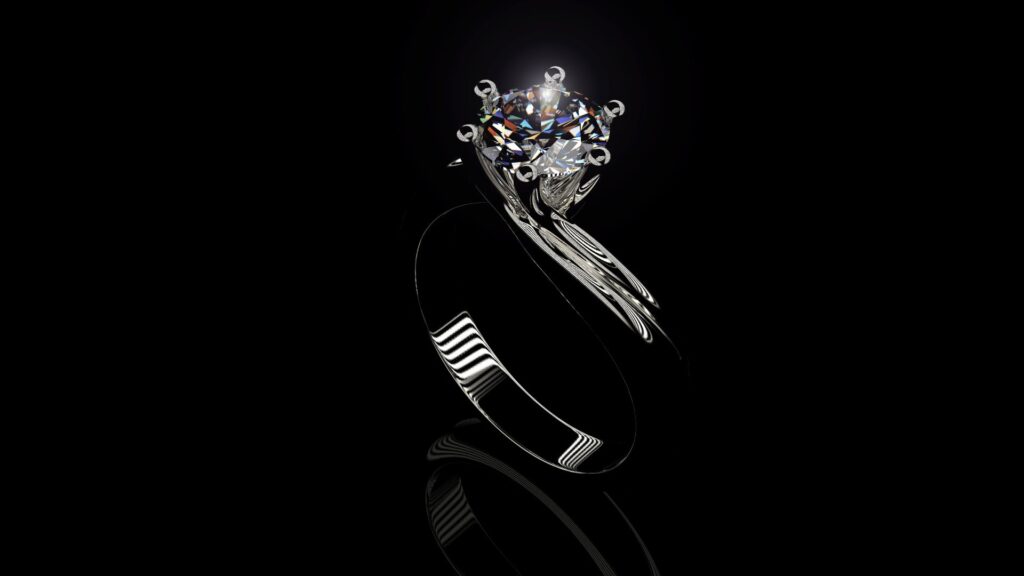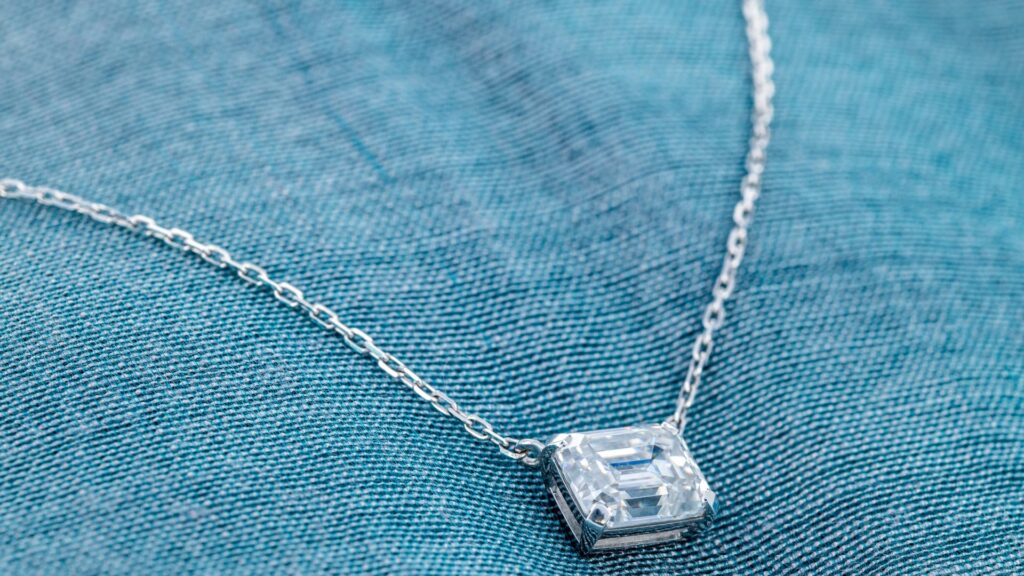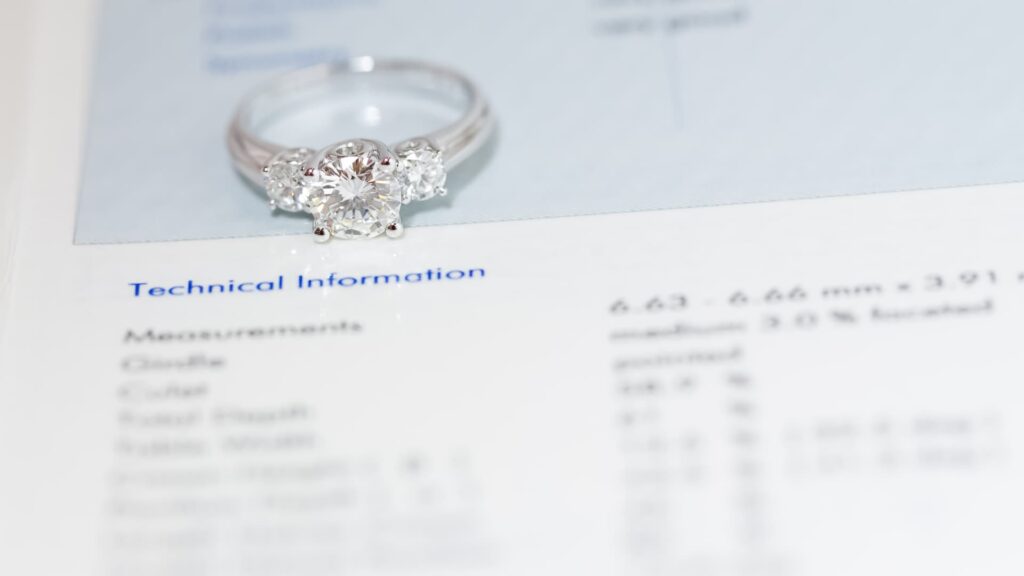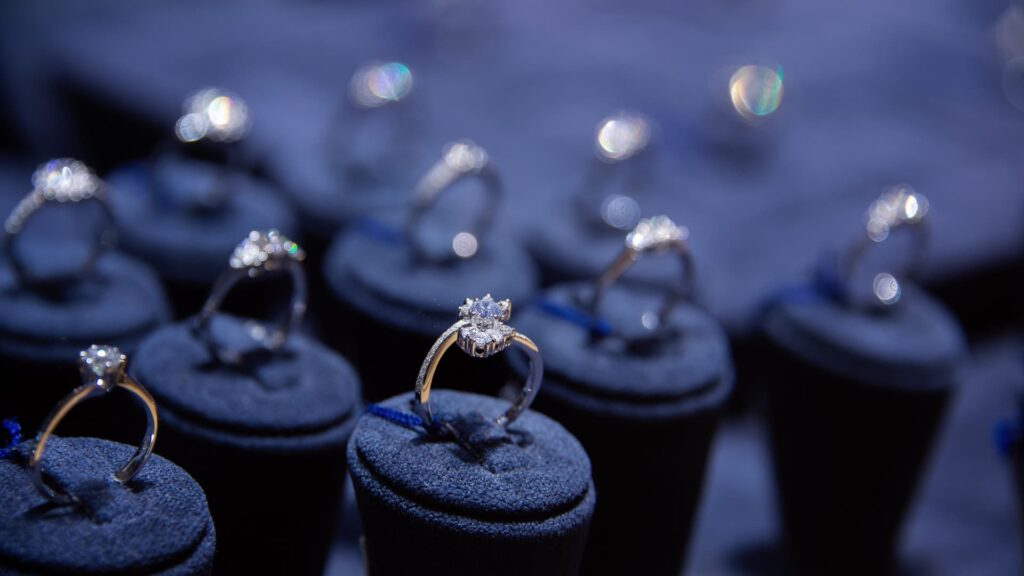Diamonds are priced high for their beauty and rarity. But, sometimes, you may want to resell your diamond. Many people think that diamonds are an excellent investment, just like gold or silver, and they can get their money back at any time. But is this true?
Diamonds have a resale value in the market, but it is unlikely to be near the price you bought them for. As soon as you purchase your diamond ring or necklace from a jewelry store and leave the shop, the value of the precious diamond reduces to 50 percent of its sale price. Shocking, isn’t it?
The resale price of the diamond is much less than the retail price because the jeweler buys diamonds in bulk from wholesalers at a low rate. The jewelry retailer then adds their rent, air conditioning, salaries to the staff, and of course, a brand markup onto the diamond’s base price.
So, the jeweler will not be ready to pay you the price he sold the diamond for because he can purchase that stone at a much lower price from a diamond dealer. This article discusses the reasons for the resale value of diamonds in detail. Keep reading to learn more!
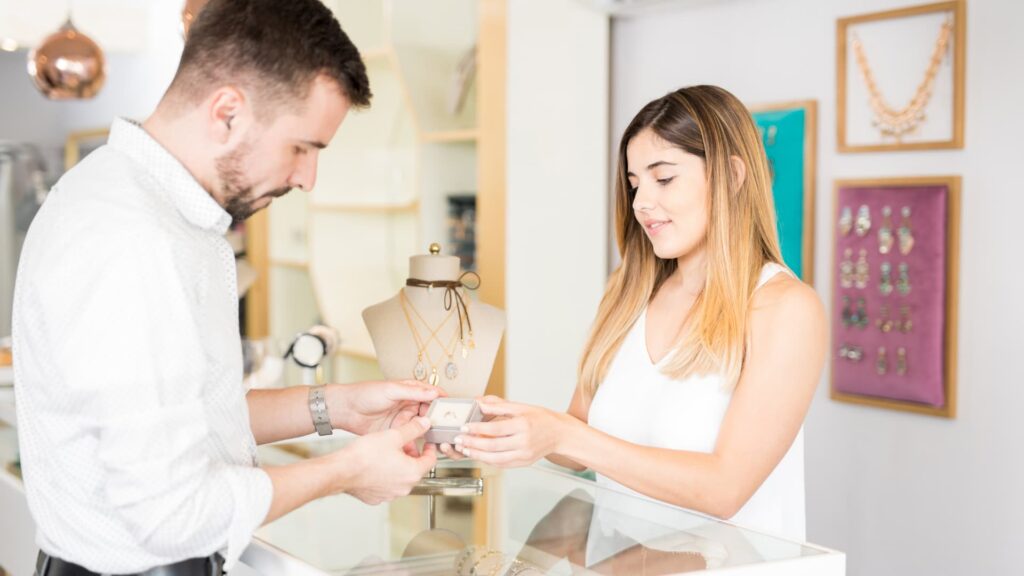
Why Is the Resale Value of Diamonds So Low?
Most people have a misconception that diamonds are a good investment and have a high resale value. But in reality, the value of your diamond depreciates the moment you leave the store.
It’s the same as with a new car. When you purchase a new car, you may spend thousands of dollars, but as soon as the next day, when you decide to sell it, its value has dropped tremendously. Even if you might not have used it very much.
You will lose while reselling, and the same thing is true for diamonds. The value of your diamond falls dramatically after your buy it. To understand why you will need to understand the diamond value chain.
Value Chain Markups
Diamonds are mined, cut, and polished by a diamond manufacturer. Wholesalers then buy diamonds in bulk from these manufacturers and sell them to jewelry stores and online diamond companies. Each person in this value chain adds some extra margin to the diamond to profit.
Keystone Markup
After this, jewelry stores add a markup price on the final price of diamonds to cover their operational costs and salaries and then add their markup at the end to make a profit. In the end, the jewelry displayed in a store is almost twice what it cost the manufacturer.
Cost of Adjacent Diamonds
Lastly, when selling, the retailer will charge you for all diamonds, including the adjacent ones. However, when you try to resell, the diamond buyer is only interested in the center stone, which they can reuse in another piece of jewelry.
For these reasons, the resale value of a diamond is anywhere between 25 to 50 percent of the original purchase price. If you have purchased a diamond for $15,000, the resale value will be somewhere between $4,000 to $6,000 at best.
Rare and colored diamonds might be good investments because they will still fetch a handsome price when reselling. But for other, more regular diamonds, you cannot consider them to have an investment value.
The best option is to purchase diamonds online. Online stores don’t have as many operational costs, and many of them try to keep their markup down because some clients may have trust issues regarding online purchases.
What Other Factors Affect the Value of My Diamond?
Many people think that the price of a diamond depends on its carat weight. But in reality, that’s not totally true. The price of a diamond depends on 4 Cs: cut quality, clarity, color, and carat weight.
1. Color Grade
A diamond in a jewelry store is available in various colors, for example, white to red, blue, and yellow. The color of a white diamond is represented by letters D through Z, where D signifies colorless diamonds. Diamonds will have a yellowish tint as you approach Z grade.
However, fancy colored diamonds have even more color and are graded separately. If you have purchased fancy color diamonds like yellow or blue diamonds a few years back, they still have a good resale value in the market compared to colorless white diamonds.
This is because colored diamonds are extremely rare in nature. You may even be able to get close to the original price of your diamond when reselling.
2. Clarity
Clarity says something about inclusions or any impurities inside the diamond. Natural diamonds are formed when carbon deposits deep inside the earth are subjected to high pressure and temperature. The process may result in some impurities inside the diamond called inclusions.
The Gemological Institute of America grades clarity between flawless (FL) to visibly flawed (I3). Flawless diamonds don’t have any inclusions or blemishes when observed under 10x magnification.
On the other hand, I3 clarity grade diamonds have inclusions that can easily be observed when viewed under 10× magnification, affecting the sparkle of the diamond.
If you are selling a diamond of FL grade, you are likely to get a resale value closer to the original price because FL diamonds are also very rare.
Related article: What Is a Certified Diamond: Certificates Explained
3. Carat Weight
Carat weight refers to the weight of the diamond you purchased. One carat is nearly equal to 200 milligrams.
High carat diamonds are extremely rare in nature, which is why a 1+ carat diamond will be able to net a better percentage of its original price in resale compared to a 0.5 carat or even smaller diamond.
4. Cut Quality
The cut of a diamond signifies the brilliance and sparkle of the stone. Certain cuts sparkle more and are more expensive. If the diamond is a perfect round brilliant cut, it might have a slightly better resale value.
5. Brand Value
If you purchased the diamond from a reputed brand like Tiffany or Harry Winston, the resale value will be a bit higher than that of a non-brand retailer.
But remember that reputable brands have very high markups, which they include in the initial price of the diamond.
6. Diamond Certificate
Certification has a definite impact on the resale price. You can find all the details regarding 4 Cs of the diamond in the certificate you may have received during the purchase. But if you have purchased a diamond without a certificate, then you should pay a visit to the jeweler from whom you purchased it and get the certification papers.
If you purchased diamonds with GIA certification or any reputed entity, the resale value might be higher because the buyer or auctioneer will know the authenticity and natural characteristics of the diamond while purchasing.
7. Condition of Your Diamond
The resale value of your diamond also depends on the present physical condition of your diamond. If there are scratches or chips on the diamond, its value will fall significantly.
How Much Is My Diamond Worth?
The first step in determining how much your diamond is worth is to compare the price of your diamond ring with one that has recently been sold on the market. For instance, if you have a GIA-certified ring, you need to compare it with a GIA-certified ring available in the market that has the same properties as your ring.
Now multiply the average retail price of the same diamond by 30 percent to 75 percent to get a rough idea of the resale value of your diamond.
If you purchased your diamond from a reputed brand and sell it in the secondary market, you may have a massive loss while selling. The retail price of these reputed sellers includes huge markups, which are over and above the operational costs of their stores.
Most auctioneers and buyers don’t care about the overhead costs or the markup that was added when the diamond was sold. They will not pay you much for your diamond.
So if you are thinking of reselling your diamond someday, consider buying it from an online retailer in the first place, which charges lower overhead costs. This way, you can sell your diamond in time with very little loss compared to the initial retail price.
I Have My Diamond Appraisal. Will I Get High Resale Value?
Diamond appraisals are just like a car title. A car title contains vital information about the car like model number, VIN, and other details. Similarly, a diamond certificate contains all the details of the diamond-like clarity, cut grade, color, unique number, your name, and various other details.
Sometimes your appraisal document might even promise a resale value. But the jeweler is unlikely to hold up his end of the bargain if you try to resell the diamond to them.
Unfortunately, jewelers often make false reports about the resale value to make you believe that your diamond is valued at much less than the original price of the diamond. For instance, if your appraisal states that the diamond is worth $25,000, why would a jeweler sell it for $17,000.
Think about it for a moment; the jeweler is not stupid. They are simply using a market tactic to sell their diamonds. The jewelry store and the insurance company will likely benefit at the consumer’s expense.
Retailers use appraisal value to sell their diamonds at a higher price to the consumer. Moreover, the appraisal document allows the insurance company to charge high premiums to the consumer.
Do Lab-Grown Diamonds Have High Resale Value?
Yes, lab-grown diamonds have resale value like natural mined diamonds.
Lab-grown diamonds are typically 50 percent cheaper than natural diamonds for the same carat weight and other specifications. The market value of a lab-grown diamond is determined by its quality and is graded by the 4 Cs: color, carat, cut quality, and clarity.
A qualitative lab-grown diamond takes many months to grow in the lab. So, fancy and large-sized lab-grown diamonds are available in limited numbers on the market.
While reselling your lab-grown diamond, you might find that many local jewelers may not show interest in buying it. But there will still be buyers who will buy it from you; you just need to find the right one to sell to.
Where Should I Sell My Diamond?
You can choose any of the following options.
1. Direct sale
You can find a person and sell your diamond directly. It will avoid all the hassle while selling diamonds in any jewelry store. However, if you are selling to a stranger, you will likely have to obtain an appraisal document and certificates to prove the resale value of your diamond.
2. You Can Ask For an Exchange
You can exchange your diamond and buy other jewelry from the store where you bought it. You can get a high resale value by exchanging your diamond from the same store. The jeweler usually gives you a store credit, which you can utilize in purchasing a new piece of jewelry.
3. Sell Your Diamond Online
You can sell your diamond jewelry online to a reputed online buyer for a good resale value.
Final Thoughts
Unfortunately, diamonds are not considered good investments. The resale price is very low compared to the purchase price of a diamond.
But if you have decided to resell your diamond for some reason, then hopefully this guide will help you. Remember that you will likely need to obtain official documents like a diamond certificate and appraisal to find a good resale price.
Related articles:
Is It Normal for Diamonds to Fall Out of Rings


